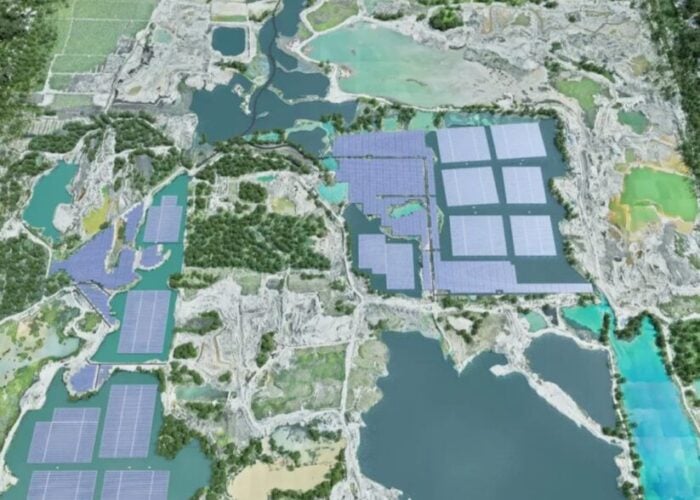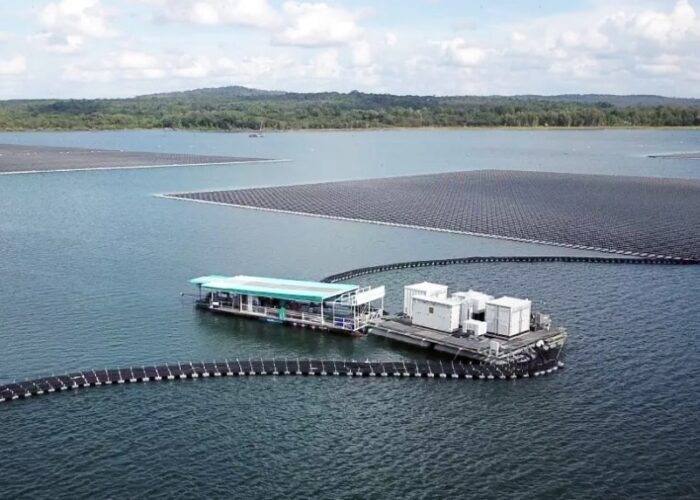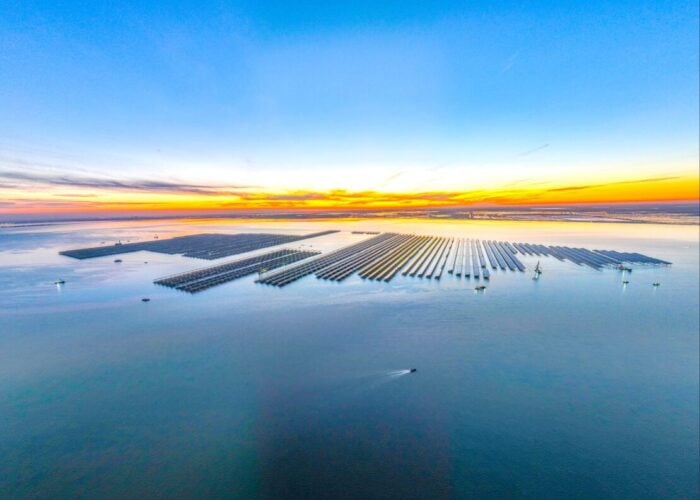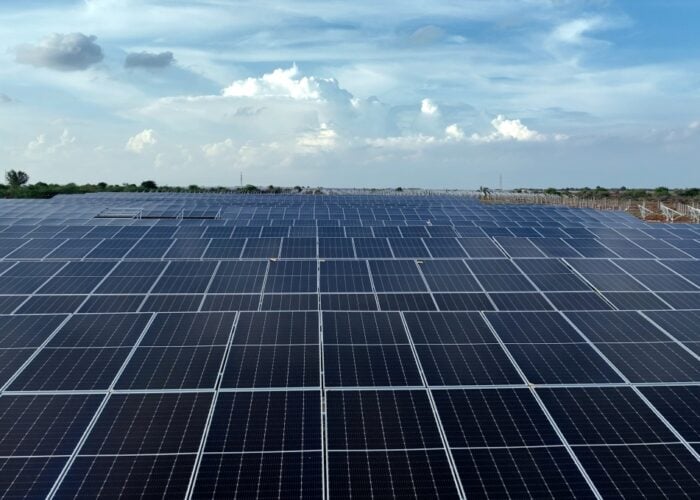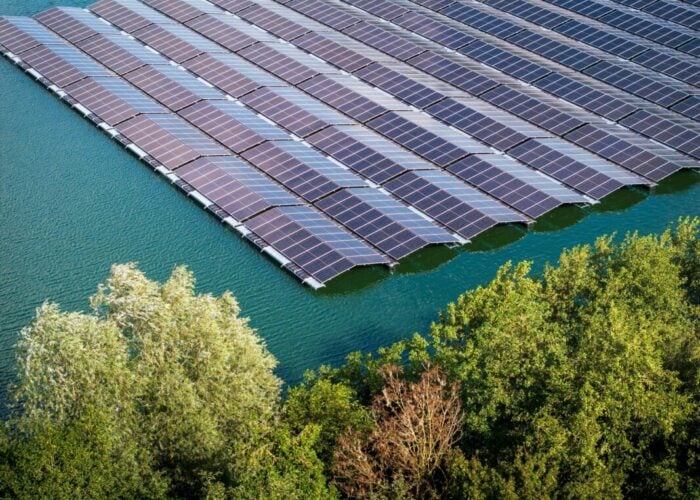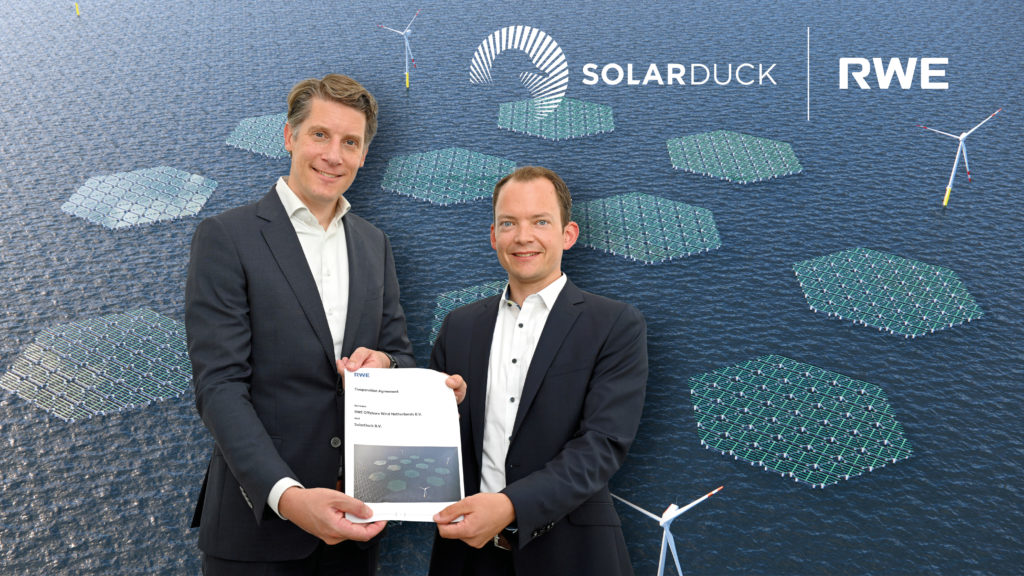
RWE and floating solar company SolarDuck have partnered to explore the commercialisation of SolarDuck’s offshore floating solar PV (FPV) technology by trailing its potential in harsh environments in the North Sea.
German utility giant RWE has committed to investing in a first offshore ‘Merganser’ pilot project in the North Sea in order to “accelerate the learnings” of SolarDuck’s FPV technology.
Try Premium for just $1
- Full premium access for the first month at only $1
- Converts to an annual rate after 30 days unless cancelled
- Cancel anytime during the trial period
Premium Benefits
- Expert industry analysis and interviews
- Digital access to PV Tech Power journal
- Exclusive event discounts
Or get the full Premium subscription right away
Or continue reading this article for free
SolarDuck´s technology is made up of triangular-shaped platforms that are designed to float several meters above the water, keeping critical electrical components dry as well as safeguarding the integrity of the ‘semi-submersible’ structure, RWE said.
Merganser will have a nameplate capacity of 500kW by 2023 and is expected to be installed off the coast of Ostend in the Belgian North Sea. The location will provide the companies with important information regarding “one of the most challenging offshore environments in the world”, potentially facilitating faster commercialisation from 2023, RWE said.
“Showcasing SolarDuck’s robust technology in rough North Sea conditions will enable us to deploy the technology practically anywhere in the world,” said SolarDuck’s CEO, Koen Burgers.
The pilot scheme will then set up a potential larger demonstration project at the Dutch offshore wind farm Hollandse Kust West (HKW). RWE is bidding for the project and said it had included SolarDuck into its application “with a highly innovative combination of offshore floating solar with integrated storage solutions.”
Describing FPV as a “new frontier”, RWE said its integration with offshore wind parks enabled a “a more efficient use of ocean space for energy generation” by using the space between turbines and allowed for “synergies with regards to the construction and maintenance of the multi-source renewable energy plant.”
RWE said SolarDuck’s technology opens “a new door for solar energy” and the companies will “explore new opportunities with the objective to develop commercial offshore floating solar parks, both stand-alone and hybrid.”
“The combination of RWE´s leading global market position and SolarDuck´s technological and commercial ingenuity sets the perfect base for accelerating the deployment of this high-potential technology,” RWE said in a media statement.
“For countries with lower mean wind speeds but high solar irradiation, this opens up attractive opportunities,” said RWE CEO for Offshore Wind. “With the SolarDuck pilot we are gaining experience with a highly innovative offshore floating solar technology.”
Many companies have been exploring FPV technology, especially in countries with small available land space, as a means to increase solar deployment. Yesterday, Keppel Energy Nexus bagged a contract to pilot a membrane-based nearshore FPV system at Jurong Island, Singapore using FPV company Ocean Sun’s technology.
PV Tech Premium has taken a closer look at how customised install techniques have helped the Singapore’s largest FPV to date as well as exploring the challenges and experiences of FPV systems in other regions.

